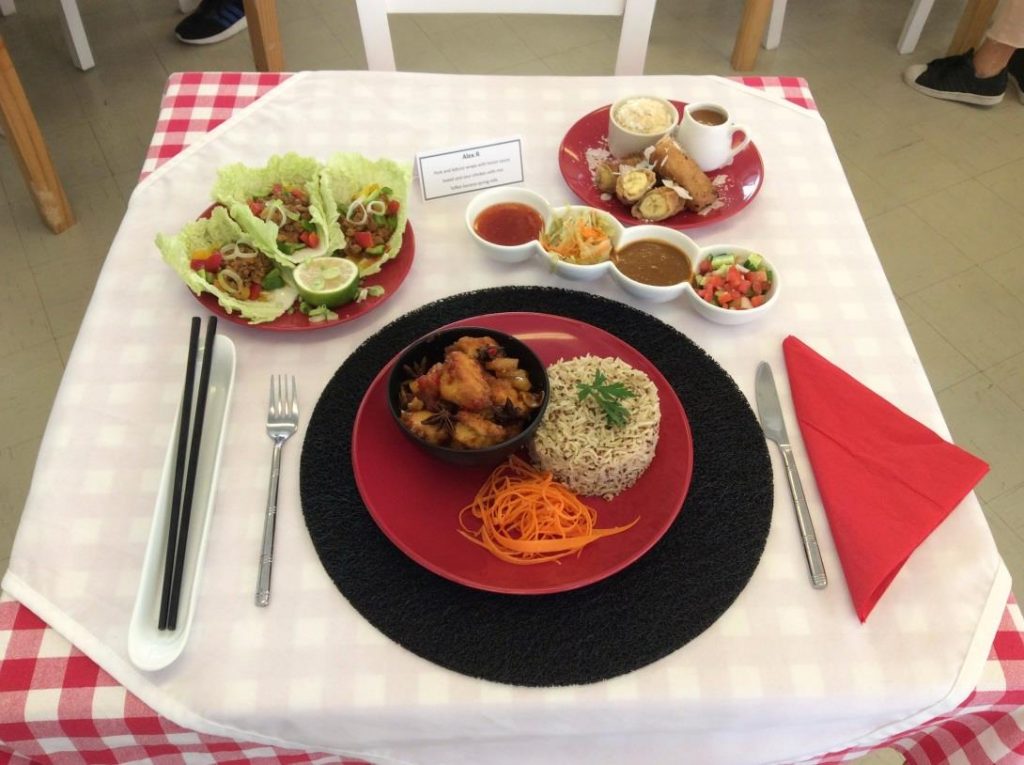What does the national curriculum say?
“As part of their work with food, pupils should be taught how to cook and apply the principles of nutrition and healthy eating. Instilling a love of cooking in pupils will also open a door to one of the great expressions of human creativity. Learning how to cook is a crucial life skill that enables pupils to feed themselves and others affordably and well, now and in later life.”
KS3 pupils should be taught to:
- understand and apply the principles of nutrition and health
- cook a repertoire of predominantly savoury dishes so that they are able to feed themselves and others a healthy and varied diet
- become competent in a range of cooking techniques [for example, selecting and preparing ingredients; using utensils and electrical equipment; applying heat in different ways; using awareness of taste, texture and smell to decide how to season dishes and combine ingredients; adapting and using their own recipes]
- understand the source, seasonality and characteristics of a broad range of ingredients
Link to full document here
KS3
|
In this unit we students will explore the different nutrients needed by the body, their function, and foods which provide them. We will look at differences between macro and micro nutrients and how nutrient deficiencies can affect the body. Students will cook a range of healthy dishes which consider the advice of the Eatwell Guide whilst continuing to build practical skills. |
Practical lessons: |
|
Year 7 Term 3: World Foods In this unit, students will prepare and cook a range of traditional dishes from countries around the world. They will research into traditional cuisines and consider why particular dishes are served. They will learn about the origins of ingredients and how climate and geography play a part in their availability. The dishes cooked will enable students to build on and develop their practical skills. |
|
Year 8 Term 2: Great British Bake Off In this unit, students will learn about the different methods of cake making and how aeration of baked goods is achieved through chemical, mechanical and biological methods. They will investigate the different functions of ingredients and how these can be exploited to achieve a range of different cakes. Students will cook a range of cakes, each recipe using a different cake making method. They will be given the opportunity to design and make celebration cupcakes of their choice. |
Practical lessons: |
|
Year 8 Term 3: Special Diets In this unit students will learn about special diets and the reasons why people follow them. They will look at possible nutrient deficiencies caused by eliminating foods from the diet and the ways a balanced diet can still be achieved. Students will prepare and cook a range of dishes which have been adapted to suit special dietary needs. |
|
Year 9 Term 3: Eco Cafe In this unit students will learn about the wider social, moral and environmental issues associated with food production. They will cook at range of dishes, considering the origins of the ingredients and how they have been produced. Students will learn how to develop dishes and use alternative ingredients which may be more sustainable. |
Practical lessons: |
|
AQA GCSE 9-1 Food Preparation and Nutrition Why choose AQA for GCSE Food Preparation and Nutrition? GCSE Food Preparation and Nutrition is an exciting and creative course which focuses on practical cooking skills to ensure students develop a thorough understanding of nutrition, food provenance and the working characteristics of food materials. At its heart, this qualification focuses on nurturing students’ practical cookery skills to give them a strong understanding of nutrition. Food preparation skills are integrated into five core topics:
Upon completion of this course, students will be qualified to go on to further study, or embark on an apprenticeship or full-time career in the catering or food industries. |
|
Course structure: Year 10 Year 10 is spent studying the five core topics through a mixture of theory and practical work. Practical work could include product analysis, nutritional analysis, practical investigations and preparing and cooking full dishes. Students are always encouraged to cook all dishes and their components from scratch which will equip them with the skills which garner the higher marks in their assessments in year 11. They are assessed across 12 practical skill areas:
The theory and practical skills are taught through a number of units using real life scenarios. Year 10 Units:
|
Year 11 |
|
More information and the full specification can be found here |
|
Useful books |
|
Useful websites https://www.foodafactoflife.org.uk/ https://www.bbc.co.uk/bitesize/subjects/zdn9jhv https://www.thespruceeats.com/ |



















